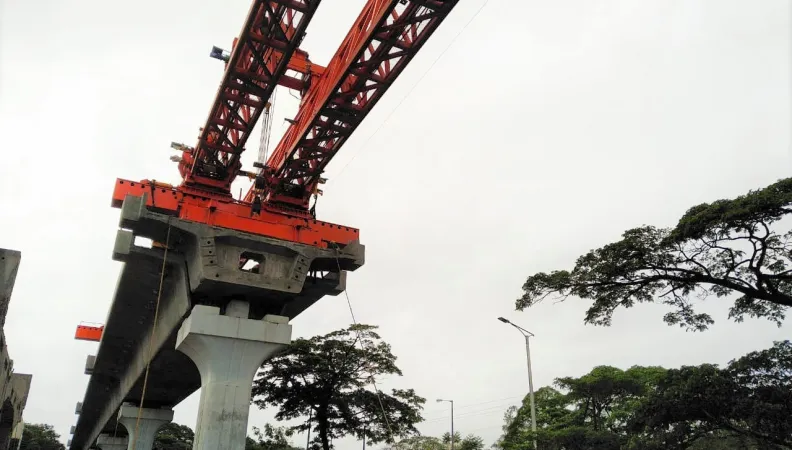Share the page
Accessible and sustainable urban mobility in Pune
Project


-
Project start date
-
Status
Ongoing
-
Project duration
-
5 years
-
AFD financing amount
-
€ 180 000 000
-
Country and region
-
Location
-
Pune, India
-
Type of financing
-
Beneficiaries
-
MAHA-METRO
AFD together with the European Investment Bank, supports the MAHA-METRO in the construction of a metro line that will lead to sustainable, long-term improvements to urban mobility in Pune.
Context
Located in the state of Maharashtra and called 'The Queen of the Deccan' for its rich natural resources, Pune is one of the most highly industrialised cities in Maharashtra and the second largest in the state. While Pune is well-connected to state capital and surrounding headquarters through road and rail linkages, increasing private car ownership and the absence of a rail system is putting increased pressure on its roads.
Roads in Pune need to cater to mixed traffic conditions which include both slow and fast moving vehicles. Existing road transport in Pune can optimally carry 8.000 persons per hour per direction (PHPDT). However when traffic density increases beyond this level, as it does during rush hour, the average speed of vehicles comes down. This leads to longer journey times, increased air pollution and more inconvenienced commuters.
Both the Government of India and the Government of Maharashtra recognize the importance of sustainable urban development and urban public transport, particularly in the context of Pune being selected by the government to be one of the 100 smart cities of the country as part of its Smart Cities Mission.
Description
The AFD will be providing support to MAHA-METRO to construct two mediumcapacity subway lines along the busiest thoroughfares of the city. The financing plan includes also the participation of the European Investment Bank.
The overall goal of this project is to improve the mobility of the inhabitants while promoting sustainable development of the agglomeration. The construction of the Pune metro, therefore, looks to increasing access to lowcarbon transport, serving essential economic zones in the city and halting the increase in the number of private vehicles in Pune.
The network is 33,254 km long and has 31 stations. When completed, the Pune metro is expected to carry 600.000 passengers per day.
Impacts
- Economic development through strengthening and streamlining the link between the residential and employment areas
- Social well-being and reduction of social imbalances by enabling equitable access to essential goods and services
- Positive impact on the environment through reduction in traffic congestion, air and noise pollution, and fuel consumption


